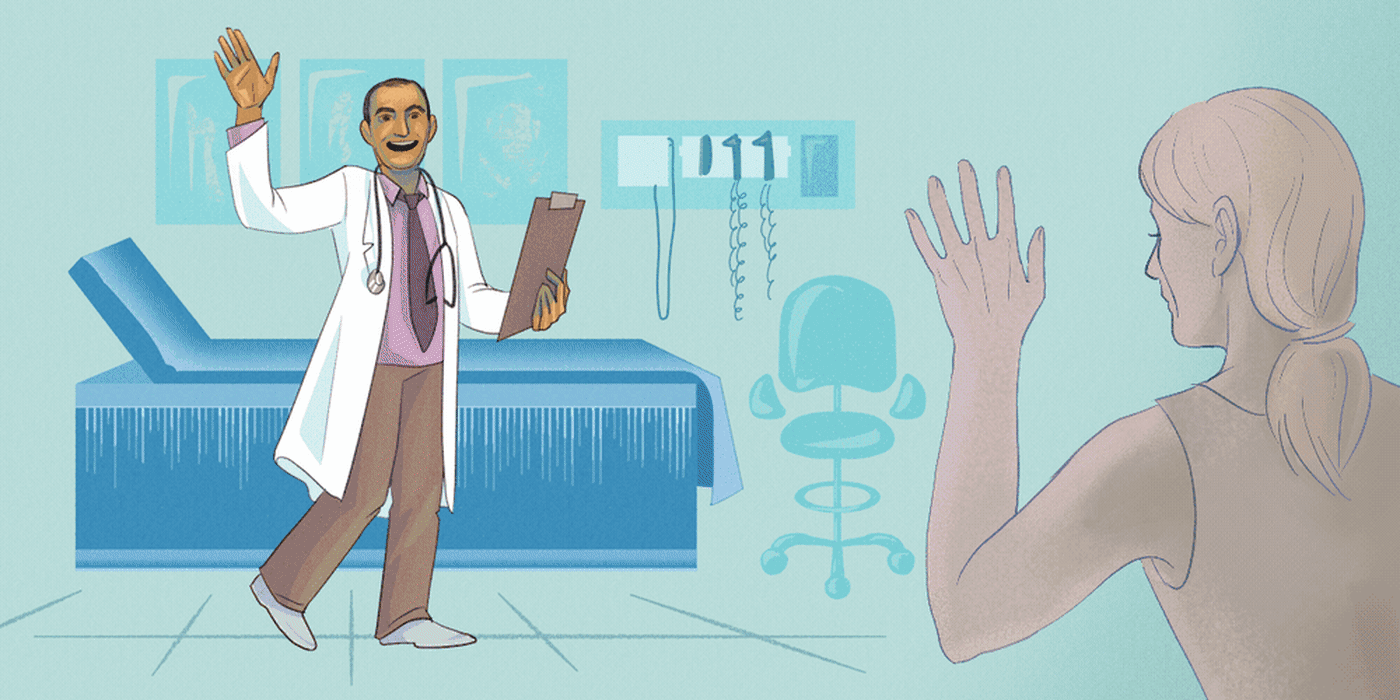When I decided to go into medicine and become an ob/gyn, I never thought about questions of anonymity. Having trained in a city across multiple sites and with minimal patient continuity, while also experiencing the all-consuming nature of residency, I didn’t have much experience with encountering patients in a public setting. The first time the notion came up was actually while interviewing for my first (and current) position in practice. In one of my interviews, my then potential partner mentioned how frequently she ran into her patients at the grocery store. Of course this is bound to happen, but to be honest I did not pay much attention to this comment. Living and working in what I would describe as an average-size city, I did not anticipate the frequency of patient interactions I would experience outside of work. And initially it was rare. However, as time has gone on, it has become more and more frequent. And now, almost five years into practice, there are days I do not leave the house without seeing someone I have cared for, everywhere from the grocery store to the dentist, my children’s activities to the local barber shop — and truly anywhere else I might go. Recently, while running errands with my 9-year-old son on one of these days, he asked “Why do so many people know you?”
Being known in this way can have both positive and negative implications. I am proud to care for members of my community. It is satisfying to me that I have been able to care for families attending school with my children, women in my neighborhood, and so many women connected to my own friends and family members. It makes me proud for my family to see children I have delivered and to hear positive comments from my patients.
However, it would be disingenuous of me to ignore that being a physician in public can also be burdensome. I frequently feel concerned about how my appearance or actions in public measure up to the expectations of patients who recognize me. While I genuinely enjoy and get along with so many of the women I care for, I am also aware that a physician often fills a particular role in a person’s life, similar to a teacher when you are in school, and we are often viewed by patients through the lens of this role and the expectations it carries instead of as a complete person. Furthermore, meeting the emotional and medical needs of patients as I go through my day can leave me depleted, and I do not always have a reserve to draw on further in the case of an unanticipated interaction requiring my doctor self. (This is the case even with patients who see pieces closer to who I am in other roles, as our relationship is first and foremost about supporting their needs.)
Additionally, I don’t fail to recognize that this can be a sensitive interaction for my patients. Particularly in obstetrics and gynecology, the medical care I give often requires exposure to intimate information that many people do not want to share with an acquaintance they unexpectedly encounter at the grocery store. For patients with bad outcomes, a physician may be the person who delivered the worst news they ever received or the person present for a devastating loss … and thus not a welcome presence at the school ice cream social.
While I do not want a patient to feel unrecognized or unwelcome, it is also important to care for a patient’s privacy and comfort in these community interactions. Most often I let the patient lead any acknowledgment that we know each other, and certainly any acknowledgement of the nature of our relationship. While I do everything I can to be sensitive in these interactions, it is an area without rules or training. Though I have gotten better at navigating unexpected community interactions fluidly, it is inevitable that some patients would have preferred I’d approached our chance encounter differently.
As a physician working in a community hospital-based practice, the community aspect of my practice has wider implications than I anticipated in my day to day life. I have come to accept that as a community physician, I am frequently a recognized individual as I navigate my day-to-day interactions. While I certainly have days or moments where I crave the anonymity I see my husband, mother, etc. take for granted, I also have the privilege of being regularly reminded in a personal setting of the positive impact I get to bring to my community.
What's a memorable patient interaction you've had outside of work? Share in the comments.
Dr. Erica Jacovetty is an ob/gyn practicing in Maine. She enjoys reading, pie making, and gardening. Dr. Jacovetty was a 2024-2025 Doximity Op-Med Fellow.
Animation by April Brust






